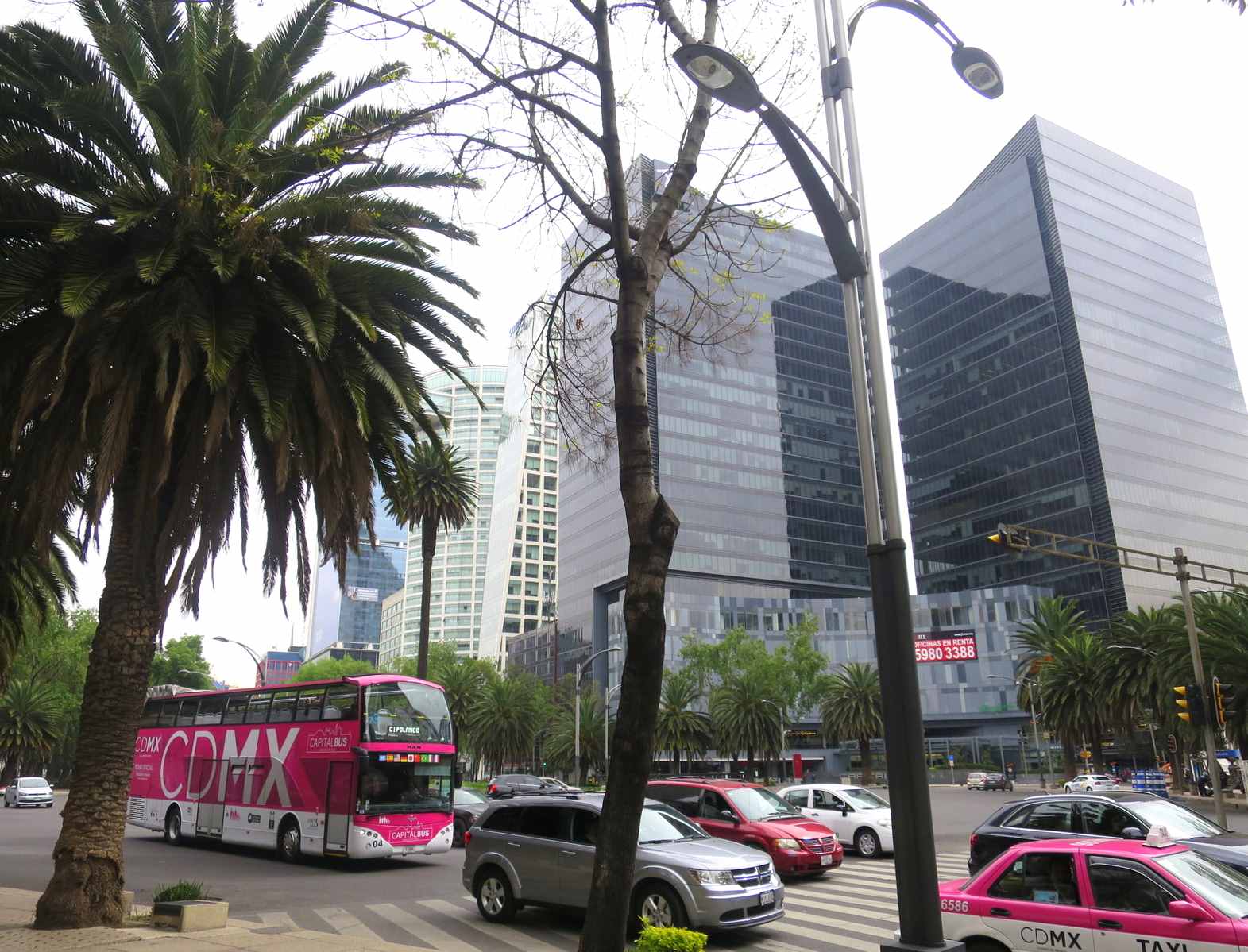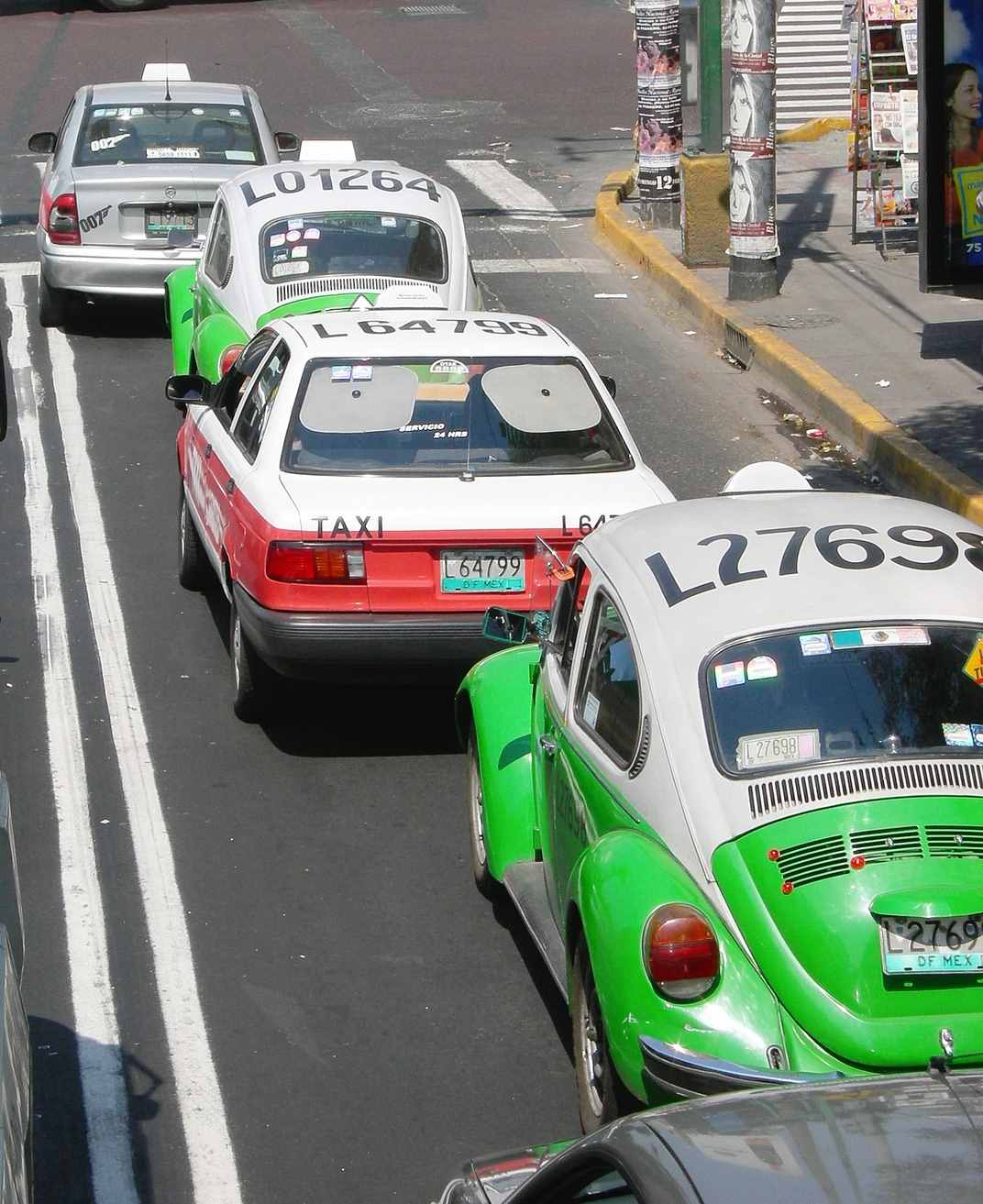Mexico is a country of extraordinary contradictions, a country in a state of always becoming; the heartbeat of a thousand beginnings: half built casas, crumbling stone fences, walls, piles of rocks coming from nowhere, leading nowhere, trailing off into nothing. A place where the sacred and the profane co-exist in this timeless. immutable landscape. It is here in this land with its holy places, its pyramids and shrines, its virgins and saints that I have begun to experience a sense of the numinous. A place to which you can ride on the wings of grace into the transcendent, taste the divine.
On the bus from the highlands of Oaxaca–once the center of Zapotec culture–to Mexico City, I lean against the window of the bus and dream away the dusty miles. The road climbs into the mountains of the Sierra Madres, the escarpment a granite slash across the landscape, plunging deep into canyons, green and waiting. Not far out of the city, a man walks by on a narrow dirt road with his small brown burro and a cart filled with branches and scraps of wood. Behind him, a sign advertises The Rumba Kings, tall and garish against the stillness of this placid picture. Fields are sere and yellow; white blossoms explode from branches of trees that show no other signs of life. Tall cacti erupt from the hillsides: organos, nopal, agave.
As we climb out of the valley, steep canyons drop hundreds of feet down into dry river beds and yellow flowers sprout incongruously out of rust-colored hills. A shepherd sits under a tree, surrounded by grazing sheep. He is leaning against a green knapsack and wears a black cowboy hat. Burros, sheep and cows appear out of nowhere on the steep hillsides, like small, shifting dots. High in a mountain pass, three men sit by the side of the road, playing cards, taking their siesta in the cool shade of a yellow tractor.
And everywhere, arroyos–and rarely a sign of water–filled mostly with dust and rocks and often basura: garbage. I look up the words I see on the road signs in my Spanish dictionary. It doesn’t much help my conversational Spanish but it feels good learning words, adding them to my meager collection: Puente–Bridge; Prohibido Adelantar–No Overtaking; Despacio–Slow Down, and far too many that say: Viraje Peligroso–Dangerous Curve.
We arrive in Mexico City late in the afternoon, glad to be in a cab heading for Casa Gonzales, our favorite guest house and refuge in the Zona Rosa, before flying home the next day. Mexico City has always held a pearl of magic for me. Despite its vast sprawl, its fusion of glitz and grime, this city that lies like a bowl on the high plains between the Sierra Madres has an ephemeral beauty, elusive as liquid mercury and as indescribable.

Our taxi driver flings his car into the bedlam, hurtling forward despite the heat, the exhaust fumes and the never-ending stream of cars that demand space, any space, even the space that we are presently occupying. These particular streets are unfamiliar to us, a barrage of noise and color, a blizzard of chaotic, pulsing energy. At first glance, it’s a vision of shattered glass split into shards of color and light, an assault on the senses. Markets are jammed together for blocks lining the road, a jangled symphony of competing noise emanating from every one, each one a blaze of wild, unrestrained confusion. Garbage is heaped six feet high on the curbs, women costumed in pink fur, minuscule skirts, baring acres of skin, totter along the streets in desperate high-heeled vulnerability. Boys dash between cars spraying grimy water on windshields, and at the inevitable waved dismissal from the driver, drop their arms in defeat as though surrendering to an impenetrable force. It is as though the entire street has succumbed to a kind of madness, but with a determined bravado in the face of utter despair.
We narrowly miss a collision with a police vehicle and David in the front seat grabs for his seat belt. I fumble for mine, remembering–too late–that Mexico City cabs rarely have seat belts either in the front or the back. I hold tighter to the luggage and pray. I hope that the Virgen de Guadalupé, in her starry cloak dangling in a mad dance from the rear view mirror is doing her job or that our driver has made whatever peace he needs to make with her. We tell the driver that if he has cambio–change–he will get a good tip. He says he does and I relax, even imagine that he has slowed his pace.
Night in the Zona Rosa is restless, image-filled. Casa Gonzales is near the American Embassy and the sound of helicopters scoop the night, drop from a sulfur sky. My dreams are filled with the scent of the Ocotlán spice market in the Oaxaca Valles de Central–woven baskets of copal, cinnamon, tamarind, saffron–invades my sleep. I dream of the villages, the houses of the Aguilar sisters: Irene, Josefina, Concepcion and Guillermina. In the dust of their compound–which also serves as their shop–blackened cooking pots hang over an open fire, terracotta pots overflow with cactus, bougainvillea. Frida Kahlo statues stand in the tall, dry weeds, or sprout like blooms from rusted cans. I dream of a cool glass of limewater in the desert, rolling acres of ranchland, a lone tree against the distant green and yellow hills, and even further away, the soft purple blush of the jacaranda trees in full bloom. And somewhere, even deeper in my dreams, I stumble on the stone labyrinth at Yagul, where I first found what felt like a sacred place, sat alone in the hot sun and the silence, birdsong drifting through the valley, the scream of the grackles, the blue sky cut only occasionally by the sweep of the black-winged zopilotes.
The bed is only a double, too short, and the footboard still hasn’t been fixed from our stay there last year. But the room is comfortable and has a jug of good drinking water and a blue-tiled shower that has hot water. At 4 a.m. we wake the desk clerk and she walks out into a morning cool and dark and still hovering on the edge of night, rubbing the sleep from her eyes, to round up one of the taxi drivers who sleeps in his cab outside the gates of the Casa.

You might think that one of the biggest cities in the world would be a city that never sleeps but the roads are eerily empty as we veer out into the long cool boulevards of the Paseo de la Reforma. There is a scent of blossoms in the air and a fragment of moon somewhere between the Banamex building and the Maria Isabel Sheraton. We fly along the dark, still streets, through the green-glazed tunnel, past the statue “to everyone in the world” as one of our cab drivers had explained it previously, and into the already busy white and dazzling glare of the Mexico City airport. The driver hoists our bags out of the back seat and the trunk and piles them on the pavement in front of the doors.
We tip the cabbie well. He had been speedy–if not too speedy–and in an airport where you can walk miles between terminals, he leaves us at the right place. Gracias, we say, and wave him off. I look down at the bags heaped on the pavement by our feet outside the airport doors.
I make the count. Something is missing.
My black carry-on bag with my new digital camera. Memory cards with 600 pictures from a month of traveling. All of my identification. One thousand pesos. My jewelry. It is only an instant from ‘it can’t be possible’ to knowing that not only is it possible, it has actually happened.
The bag is gone.
I can still see the tail lights of the cab as it shoots into the tunnel. I run a few steps in the direction in which the cab has now disappeared, as though the sheer power of the rising tide of panic that engulfs my stomach, my chest, my throat can somehow bring it back.
I actually think it can. But it doesn’t.
Here we are at 4:30 in the morning in the Mexico City airport, watching my bag vanish into the dark.“My bag is missing.” I use my calm, level-headed voice, as though perhaps that can alter this disturbing turn of events. There has to be some kind of chance or magic that will bring my bag back to me. I believe that. But no matter what effort I put into smoothing the wrinkles in my brain, the fact is unalterable.
The bag really is gone.

We check in. We explain our situation to the airlines staff. We explain that we would like to call Casa Gonzales but that even though our Spanish is passable in some situations, this is not one of them. We are reasonably certain that the cabbie will return to his post outside Casa Gonzales and go back to sleep. But the young woman who answers the phone does not speak a word of English. We need a translator.
We fumble our way through explanations, pleadings, desperate entreaties in the glassed-in airlines office, to a black-suited man in a starched white shirt and dark-rimmed glasses. He appears unmoved by our story and his face wears a look of practiced disdain. He tells us to wait.
We sit and we wait.
I remember hearing myself say so many years ago, that waiting was not a difficult thing for me. Waiting is just another form of meditation, I said then.
This is not a meditation.
There are blue vinyl seats, uniformed guards with medals and gold braid and gleaming buttons, stony-faced, impassive. In the hierarchy of Mexican authority, those who have any power at all can be imperious, dismissive, high-handed. The underlings, despite their military get-up and their gold braid and high polished boots, may be more sympathetic but have no authority at all. One of these young men watches us, his face impassive, but his eyes registering our dismay, darting from side to side as though he were looking for some answers that he could give us, like a gift.
There is a lineup of people, each person with some version of traveling disaster who needs help. And like us, they need it now. All of us are at the mercy of these people who hold some small fragment of our lives in their hands.
Then the man with the glasses walks over to us and tells us that he will help us but we must first purchase a phone card and then he can perhaps make the call for us. He leaves the room. He does not smile and does not explain why he can’t make the local call on the telephone in his office.
We buy the phone card and we wait.
A few minutes later he comes back and wordlessly takes the card, then vanishes into a back room. We wait. He reappears. “Your bag will be here in 20 minutes,” he says.
It seems impossible.
We stand outside in the lightening morning with the hundreds of green and white cabs speeding by or slowing to let out passengers, and we watch, all our faith and hope and trust reaching out into the dim morning. I watch the sun just beginning to stain the horizon, an orange explosion in a smudge of black clouds. The moon is an upturned fingernail clipping in the blue and grey light. David runs a few feet down the pavement so that he will be the first to see the cabbie if he should show up.
And he does.
Against all probability, here he is, smiling and nodding, and in his limited English, apologizing, laying his head to one side on folded hands like wings, to show us that he had been too tired, had fallen asleep and not done a good job of delivering us and our bags to the airport.
In how many cities in the world, I think, is it likely that this could have happened?
I would guess none.
I finger my little milagro–a tiny silver heart–that I wear around my neck. Thank you, I say, though I’m not sure to whom I am saying my thanks. Thank you for the places I have journeyed from and for where those journeys have brought me. For the taxi driver, the man with the glasses, the desperate vulnerability of the street women. For the reckless, the loyal, the defiant. Thank you for all the places I have touched and that have touched me and opened my heart, for all the unexpected gifts that shine through the dailiness of our lives.
And for the knowledge that the sacred is here and everywhere, a thing as ordinary as the earth under our feet and as necessary and as beautiful as the very blood that sings in our veins.
Published or Updated on: August 26, 2020


This grips. Yes, it transcends the cliche of the “gripping” tale. It grips and keeps you gripped, unable to get up and, as H.L. Mencken once wrote about the benefits of being a writer; one can pause and make oneself a ham sandwich. This story holds you fast. No ham sandwich.
Partial confession: I met Edye more than 50 years ago – a gorgeous young hippie – and of course fell deliriously in love with her. The gorgeous writing lay ahead.
Edie (as I spell her first name. which I found
Thanks for the great comment. I love the Mencken reference and, given that you’ve only admitted to a partial confession, can’t wait to hear the full confession! I hope you will return regularly to MexConnect to read more of the site, which also includes some great original short stories.